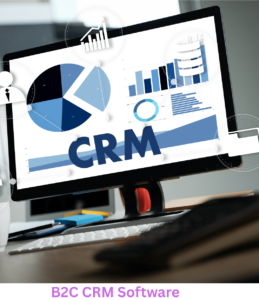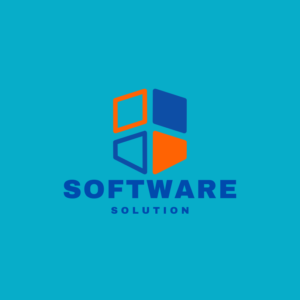Discover why businesses of all sizes, from small to large, can benefit from CRM solutions. A versatile CRM software solution can help you optimize your operations, enhance customer satisfaction, and increase business revenue. B2C CRM software, one of the most powerful tools in this category, is designed to cater to businesses engaged with end consumers, regardless of their size.
Empower yourself with the knowledge of what B2C CRM software is, its types, and the factors to consider when choosing one for your business needs. By understanding the features and functionalities of a B2C CRM solution, you can take control of your customer interactions and pave the way for your business’s success.
What is B2C CRM Software?
B2C CRM software is essentially a toolkit (or a set of technologies) that businesses use to efficiently manage their interactions with individual consumers. It is designed to better understand the company’s customer needs, preferences, and behaviors, allowing it to serve the customer in a more personalized and efficient manner, ensuring that your time and resources are well-spent.
While B2B (business-to-business) stands for relationship management between companies, B2C CRM needs to process large quantities of consumer data, optimize marketing campaigns, and manage customer service and sales and engagement strategies.

What Is the Significance of B2C CRM Software?
B2C CRM software is the one to look for in businesses whose sales rely on consumers. Here’s why:
Enhanced Customer Experience: B2C CRM software helps businesses keep track of a customer wherever he touch the business, ranging from purchase history to preferences and reviews. By analyzing this data, you can tailor your marketing strategies and improve customer service interactions to increase overall customer satisfaction.
Improved Customer Retention: With an overview of customers’ needs and problems, B2C CRM software helps businesses present targeted offers and rewards that can promote customer loyalty. Retained customers are more likely to make repeat purchases — leading to a higher lifetime value.
Streamlined Marketing Automation: Most B2C CRM systems have built-in automated marketing features, which enable businesses to create customized email, SMS, or social media marketing campaigns based on specific triggers to re-engage customers, such as abandoning carts, seasonal promotions, and product launches.
Enhanced Customer Support: A B2C CRM system enables businesses to provide multi-channel support, keeping track of queries and resolving issues promptly. This allows for a much better overall customer experience.
Make Data-Driven Decision: The insights collected with the help of B2C CRM software allow businesses to make data-driven decisions. The analytics tools within CRM systems enable businesses to KPIs, measure ROI, and make strategy adaptations through data-led outcome measures.
Types of B2C CRM Software
Many B2C CRM software types have unique features that are suitable for various businesses. Here’s a look at the most common types:
Operational CRM Software
Operational CRM software helps automate and improve customer-facing business processes like sales, marketing, and customer service. Its purpose is to manage customer interactions, store customer data, track prospects through the customer journey, and manage related tasks.
Key Features:
- Contact management
- Sales automation
- Lead generation
- Marketing campaigns
- Customer support ticketing
Analytical CRM Software
Analytical CRM software analyzes customer data to turn it into actionable insights. This CRM allows businesses to make data-driven decisions by analyzing customer data trends, behaviors, and patterns.
Key Features:
- Data mining
- Predictive analytics
- Customer segmentation
- Trend analysis
- Reporting tools
Collaborative CRM Software
Collaborative CRM software enhances communication and collaboration between a company and the departments involved. This variant of CRM is intended to coordinate the activities of all customer-facing teams (sales, marketing, customer support, etc.) towards a common goal of providing a seamless and satisfactory customer experience.
Key Features:
- Shared customer information
- Cross-department Collaboration Tools
- Real-time data sharing
- Knowledge management
Campaign Management Customer Relationship Management Software
This type of software specifically focuses on managing marketing campaigns and promotions. It allows companies to build, run, and evaluate the success of campaigns aimed at individual customers.
Key Features:
- Planning and executing campaigns
- Automated follow-ups
- A/B testing
- Lead scoring
- Email marketing integration
Cloud-Based CRM Software
Cloud-based CRM software is hosted on the cloud, and you can access it from any corner of the world, provided you have an internet connection. Remote CRM — A remote CRM is a cloud software suitable for businesses with distributed teams or organizations requiring scalability and flexibility. Cloud-based CRM solutions provide real-time data synchronization and are more financially viable than offline older versions.
Key Features:
- Cloud storage
- Remote access
- Real-time collaboration
- Integration with other cloud services
Essential Features to Consider When Choosing B2C CRM Software
When selecting B2C CRM software, must-have features includeҗиң Here’s a summary of the most significant features:
Customer Data Management
The backbone of any CRM system lies in effective data management. B2C CRM software enables businesses to capture, organize, and manage comprehensive customer data such as contact information, purchase history or behavior, preferences, and other relevant customer details.
Multi-Channel Support
Consumers engage with businesses via multiple channels, including email, social media, live chat, and phone calls. Multi-Channel Support: A sound B2C CRM system should provide multi-channel support to enable a seamless experience across all platforms.
Marketing Automation
B2C CRM systems offer marketing automation tools that enable businesses to design personalized marketing campaigns based on the segmentation of customer bases and deliver targeted content across various channels such as email, social media, and SMS.
Sales Tracking and Automation
Sales automation features can automate lead nurturing, track sales opportunities, and provide crucial insights on the sales pipeline, helping streamline and optimize the sales process. This leads to efficiency and allows sales teams to close deals faster.
Reporting and Analytics
Reporting: A B2C CRM should allow users to track important metrics and create reports. Choose CRM software that includes all-inclusive reporting tools with data visualization and analytics to track customer behavior, campaign performance, and sales outcomes.
Customer Support and Service
A strong customer support feature helps businesses manage customer inquiries, stay on top of tickets, and deliver timely solutions. Customer support is an essential aspect of upholding consumer satisfaction — be it through email, live chat, or a ticketing system.
With data gathered until October 2025
Selecting the right B2C CRM software for your business can be challenging due to the excess of software available in the market. Nonetheless, by taking into account the factors below, you can come to an informed decision that best suits your business needs:
Define Your Goals: What are your goals, and why are you choosing CRM? Would you like to enhance customer service, boost sales, or execute more effective marketing campaigns? Having identified your goals, you can select a solution that meets those needs.
Dream Big, but Keep Your Budget in Mind: CRM software pricing can vary significantly. Cloud-based CRMs are more affordable but may not have some of the advanced features that on-premise solutions provide. Account for your budget and select a CRM that matches your budget but fulfills your requirements.
Scalability: Select a CRM system to grow your business. CRM must support larger data loads and more complex processes when customer and sales volume increase.
User-Friendly: CRM software must be simple and easy for everyone on the team. Desire a solution with a user-friendly interface with as short a learning curve as possible for smooth adoption throughout your organization.
Integration Capabilities: Your B2C CRM software must also integrate with the other tools and software you use in your business, such as email marketing platforms, social media management tools, and eCommerce platforms. API Integrations ensure your CRM integrates with your existing systems as well.
Conclusion
Overall, B2C CRM software is essential for businesses looking to streamline customer relationship management, boost sales, and enhance customer retention. Knowing the different types and features of CRM software will help you choose a suitable solution for your business. So, suppose you need a CRM to streamline processes, an operational CRM, an analytical CRM to gain insight, or a collaborative CRM to improve teamwork. In that case, you can discover the best fit that will further take your business to a whole new level.
The right B2C CRM can bridge this gap and give you the competitive edge you need in today’s consumer-driven world. With the help of CRM, you can render personalized experiences for your customers and develop long-term relationships that lead to business success.
